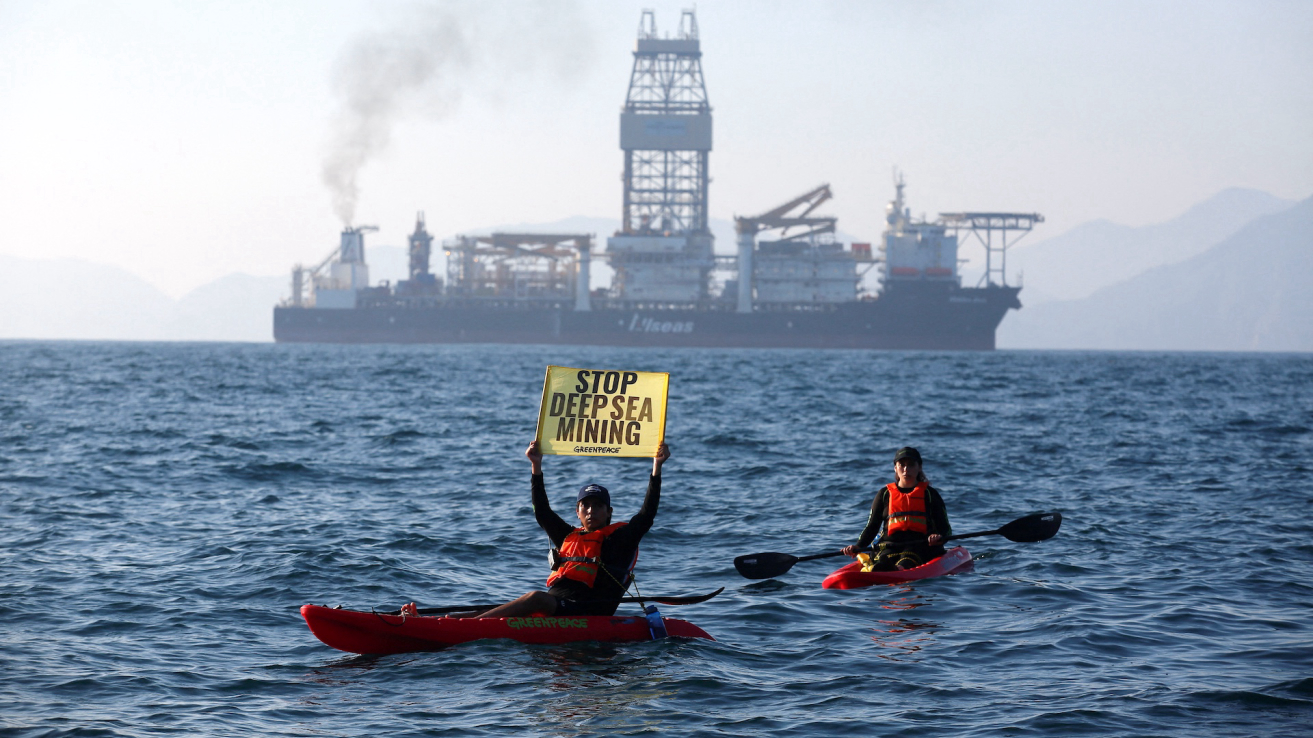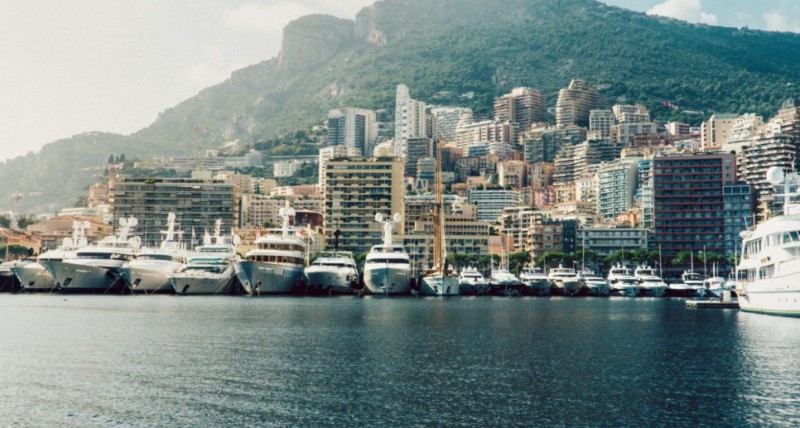Unilateral deep-sea mining, as envisioned by the Trump administration, could have serious consequences for Africa.
Under Donald Trump’s presidency, the United States is rushing toward securing critical minerals in Ukraine, Greenland, the Democratic Republic of Congo (DRC), and now the ocean floor.
A recent White House executive order aims to make the United States a “global leader in the exploration and exploitation of deep-sea mineral resources.”
Deep-sea mining (DSM) would cause irreversible damage to ocean ecosystems. It involves extracting critical minerals like cobalt, copper, manganese, nickel, and rare earth elements from the seabed using dredging, hydraulic systems, and underwater drilling.
Such projects diverge from Africa’s long-term economic and environmental priorities. As the global debate led by the United Nations International Seabed Authority (ISA) intensifies, ocean governance is being redefined. African countries must engage collectively or risk being sidelined.
Short-term economic benefits for mining operators are evident, but stakeholders are concerned about long-term financial viability and environmental impact. This has delayed the finalization of the ISA’s mining code for DSM activities, which has been in development since 2014.
At the ISA Council meeting in March, Sierra Leone, on behalf of the African group, expressed concern about initiating DSM before the code’s completion, particularly regarding impacts on land-based mining economies and the strengthening of the economic assistance fund. Environmental thresholds must be established, along with effective compliance mechanisms, transparency measures, anti-corruption safeguards, and a fair financial model for benefit sharing.
Trump’s executive order could undermine decades of multilateral ocean protection efforts
The U.S. plan to explore beyond its territorial waters violates the principle of the “common heritage of mankind” as enshrined in the United Nations Convention on the Law of the Sea (UNCLOS), which calls for global governance of seabed resources.
Although the United States is neither a member of the ISA nor a party to UNCLOS, it has historically respected the treaty as customary international law—even though Trump’s executive order targets the unilateral exploitation of global seabed resources.
The order was issued a month after Canadian firm The Metals Company (TMC) announced its intention to bypass the ISA by applying for mining licenses. In April, TMC USA submitted a license application under the 1980 U.S. Deep Seabed Hard Mineral Resources Act to exploit the Clarion-Clipperton Zone in the Pacific Ocean.
The executive order risks undermining decades of multilateral efforts to protect the oceans. ISA Secretary-General Leticia Carvalho stated: “Any unilateral action not only threatens this treaty (UNCLOS) and decades of implementation and international cooperation, but also sets a dangerous precedent that could destabilize global ocean governance.”
China—which has DSM interests—France, and the European Commission also criticized the order, citing its apparent breach of international law. Even before its release, 33 developed and developing countries had called for a precautionary pause until scientific evidence confirms DSM is safe.
DSM could harm African economies, especially land-based mineral exporters
At the third UN Ocean Conference (UNOC3) held in June in France, global opposition to DSM intensified, with 37 countries supporting a moratorium. UN Secretary-General António Guterres declared that the seabed must not become a “Wild West.”
Despite global resistance, African countries have been relatively silent. “They should advocate for science-based decision-making and address knowledge gaps to protect shared marine resources,” said Dr. Kirsty McQuaid, a researcher at the Nelson Mandela University’s Institute for Coastal and Marine Research and coordinator of the African Network of Deep-Water Researchers.
Addressing this knowledge gap is crucial. A recent study in the Clarion-Clipperton Zone found that 44 years after DSM experiments in 1979, traces of mining equipment, sediment plumes, and altered seafloor topography remain. Biodiversity has also been affected, particularly slow-growing and endemic species. Scientists continue to raise alarms about irreversible damage to marine ecosystems.
DSM could hurt African economies, especially those relying on terrestrial mineral exports. Replacing land-based minerals with seabed alternatives may reduce the value of cobalt, nickel, and manganese exports—key revenue sources for Africa. The DRC, Eritrea, Gabon, Madagascar, Mauritania, Namibia, Zambia, and Zimbabwe are particularly vulnerable. These metals account for more than half of export earnings and a substantial share of GDP in Zambia and the DRC. South Africa, Ghana, and Côte d’Ivoire—manganese producers—could also be affected.
Dr. Ifesinachi Okafor-Yarwood, an expert in ocean governance and maritime security, told ISS Today that the U.S. order “could increase competition for seabed mining and accelerate ocean degradation.” This would undermine social equity and ecological conservation—“a concern given the vital role marine fisheries play in the livelihoods of millions of Africans. Africa must adopt a clear position on DSM.”
Professor Edwin Egede, an expert in international law of the sea and a member of the ISA’s Legal and Technical Commission, echoed this view. Any unilateral appropriation of deep-sea areas violates UNCLOS and customary international law.
Africa could call for a DSM pause ahead of the ISA General Assembly
Africa must defend its heritage, protect the common heritage of mankind, and ensure international cooperation and equity guide decisions about humanity’s shared future.
African states have two options. First, they could request the International Court of Justice and the International Tribunal for the Law of the Sea to clarify states’ obligations under the “common heritage of mankind” principle. In 2011, the Tribunal affirmed that states sponsoring a project must adhere to UNCLOS environmental standards and due diligence—a decision that deters unilateral licensing.
Second, before the ISA General Assembly in mid-July, African countries could advocate for a DSM moratorium to ensure environmental protection and address regulatory gaps.
The momentum created by the High Seas Treaty at UNOC3, with 50 of the 60 required ratifications, is now threatened by the rise of unilateral ocean exploitation efforts.
Africa has a key role to play in global ocean governance and in preserving humanity’s collective future. By pushing for strong environmental safeguards and equitable benefit-sharing in ISA policy discussions, African countries can prevent DSM from jeopardizing ocean health and the rights of future generations.
Source: issafrica



